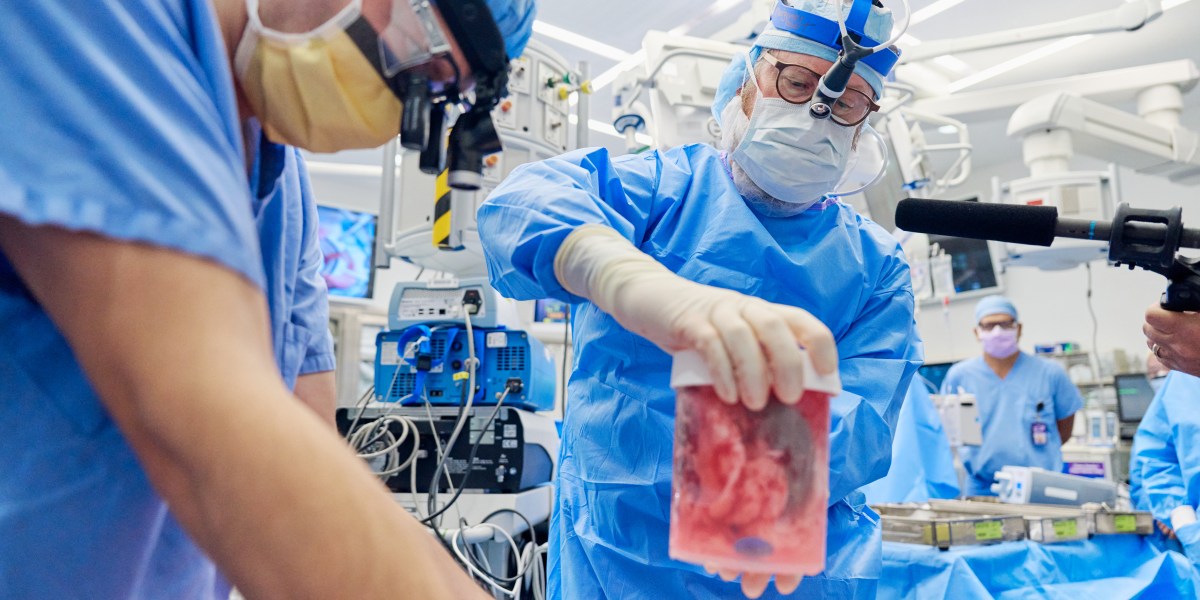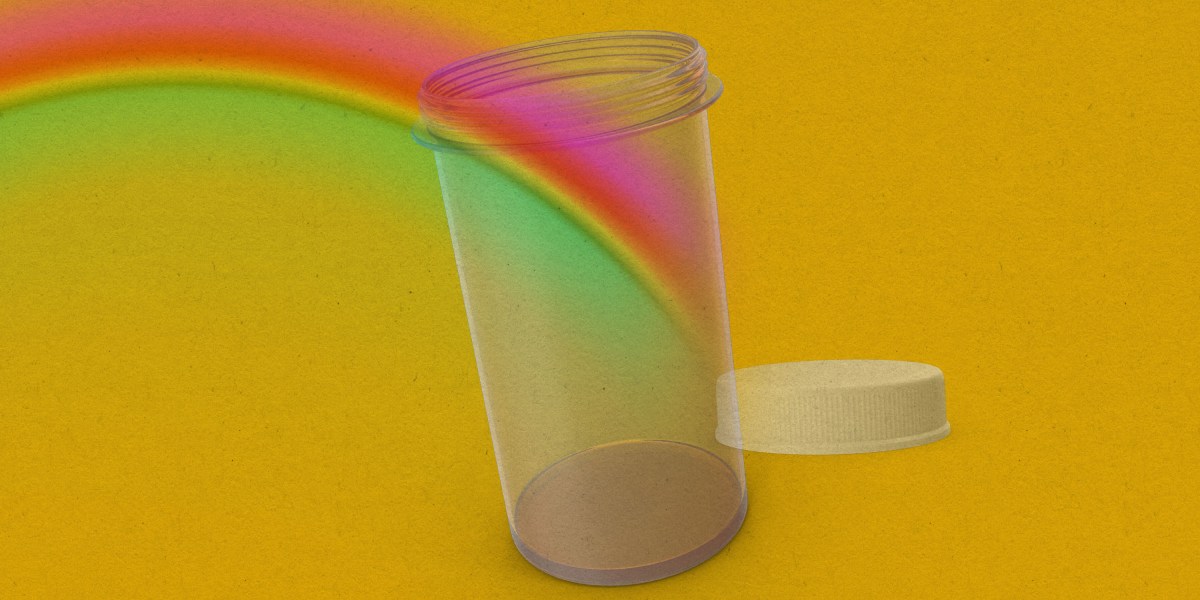But it was difficult to find a match. So Looney’s doctors recommended the experimental pig organ as an alternative. After eight years on the waiting list, Looney was authorized to receive the kidney under the US Food and Drug Administration’s expanded access program, which allows people with serious or life-threatening conditions to try experimental treatments.
The pig in question was developed by Revivicor, a United Therapeutics company. The company’s technique involves making 10 gene edits to a pig cell. The edits are made to prevent too much organ growth, curb inflammation, and, importantly, stop the recipient’s immune system from rejecting the organ. The edited pig cell is then placed into a pig egg cell that has had its nucleus removed, and the egg is transferred to the uterus of a sow, which eventually gives birth to a gene-edited piglet.
JOE CARROTTA FOR NYU LANGONE HEALTH
In theory, once the piglet has grown, its organs can be used for human transplantation. Pig organs are similar in size to human ones, after all. A few years ago, David Bennett Sr. became the first person to receive a heart transplant from such a pig. He died two months after the operation, and the heart was later found to have been infected with a pig virus.
Richard Slayman was the first person to get a gene-edited pig kidney, which he received in early 2024. He died two months after his surgery, although the hospital treating him said in a statement that it had “no indication that it was the result of his recent transplant.” In April, Lisa Pisano was reported to be the second person to receive such an organ. Pisano also received a heart pump alongside her kidney transplant. Her kidney failed due to an inadequate blood supply, and was removed the following month. She died in July.
Looney received her pig kidney during a seven-hour operation that took place at NYU Langone Health in New York City on November 25. The surgery was led by Jayme Locke of the US Health Resources & Services Administration and Robert Montgomery of the NYU Langone Transplant Institute.
Looney was discharged from the hospital 11 days after her surgery, to an apartment in New York City. She’ll stay in New York for another three months so she can check in with doctors at the hospital for evaluations.
“It’s a blessing,” Looney said in a statement. “I feel like I’ve been given another chance at life. I cannot wait to be able to travel again and spend more quality time with my family and grandchildren.”
Looney’s doctors are hopeful that her kidney will last longer than those of her predecessors. For a start, Looney was in better health to begin with—she had chronic kidney disease and required dialysis, but, unlike previous recipients, she was not close to death, Montgomery said in a briefing. He and his colleagues plan to start clinical trials within the next year.




